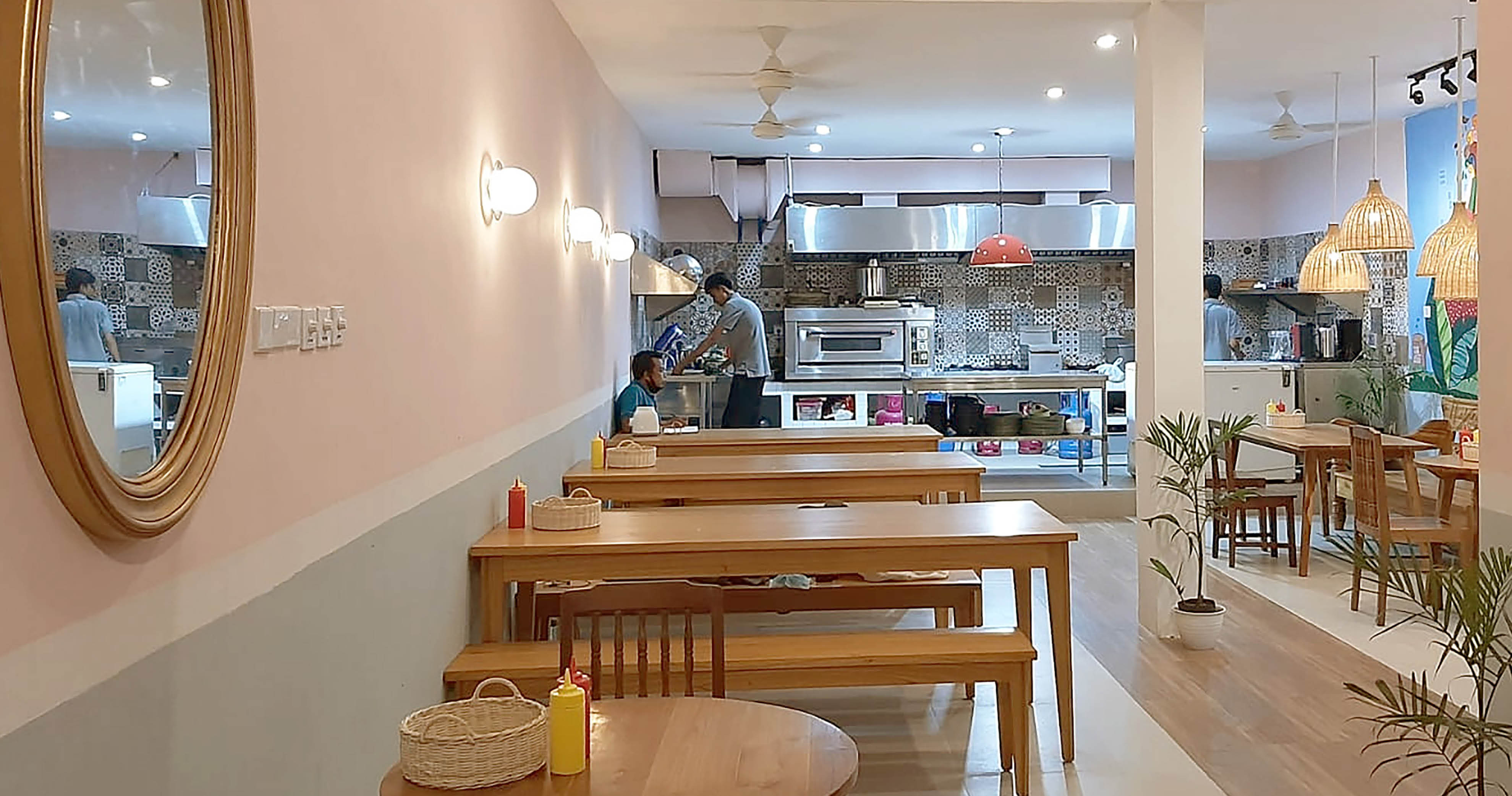
With life and business as usual put on hold, the Covid pandemic forced everybody to think differently. French foodservice consultant Gil D’Harcour embraced this challenge more than most.
After 25 years as a resident of Indonesia, the country where he built his life and a successful career after completing hotel management training in France, he found himself back in his home country, prevented by Covid from returning to his adopted home.
In February 2020 he was in the process of re-establishing his base in France, having moved back for family reasons. The idea was to live in France and travel regularly to Indonesia for business. “So, it was a big return to France, which was a foreign country for me in all aspects,” he says. “I was going to have two bases, then Covid came.”
From his retreat in the south of France last summer he started to think about his employees who were abruptly left without job. “Thanks to the power of technology, I started to dream about creating my own version of a warung, with only my smartphone on hand,” he says.
Part of everyone’s heritage
A warung is the neighborhood street café you will find in all corners of the Indonesian archipelago. “Mostly family owned, down-to-earth and featuring Indonesian comfort food, warungs represent the most accessible, because it’s the cheapest, way to eat in Indonesia,” he explains. They are often located in front of residential houses, as an extension and guests will sit on benches along polluted and noisy streets. Warungs traditionally cater to construction workers, office workers and the neighbors.
“It is best not to look into the form and the process of cooking as a warung is providing food for people’s basic needs, using melamine serving dishes that end up in large water buckets until the next order. A warung is closer to a street food stall than a café,” he says. “Who cares about personal grooming or storage temperature control, warungs have been around for ages and they are bound to stay because they are part of everyone’s heritage.”
Challenging diners
He sketched out the layout, coordinated the 3D build up with his drafter based in Jakarta and asked his chef Pak Wanono to hire his brother contractor with four other workers, each with a specialty, electrician and carpenter.
“Pak Wanono, a chef who has followed me for the last 15 years and is currently head of our school catering division, also picked a location for us, 30 minutes from his home. It had to be an active site with residential developments and about 40 minutes train journey from the centre of Jakarta,” he says.
While warungs are casual, D’Harcour was determined to provide something of high quality while also  challenging the diners to expand their culinary horizons. “Our strategy is to introduce western-style cooking to guests while respecting their purchasing power. Pizzas in Warung Javané are sold for half the price of those served in international pizza franchises. Of course, complementing western items with Indonesian and Asian meals in our menu was also important, to ensure the locals find their comfort,” he says.
challenging the diners to expand their culinary horizons. “Our strategy is to introduce western-style cooking to guests while respecting their purchasing power. Pizzas in Warung Javané are sold for half the price of those served in international pizza franchises. Of course, complementing western items with Indonesian and Asian meals in our menu was also important, to ensure the locals find their comfort,” he says.
“On the menu is pizza with fresh tomato sauce and meat with pepper and mushroom sauce. They are not adventurous, it takes time. That is why I call it warung – I invite customers into their own world, I give them fried rice and a soup and then I introduce them to what they will never be able to afford in a plush shopping center.”
Fundamental digital platforms
While Wanono and the team got things underway on the ground in Jakarta, D’Harcour and his wife Leli worked hard from France on procurement and logistics. “I provided mechanical and electrical layouts in their most simplistic style to ensure my chef and his workers will be able to read and understand them and I kept in contact with them constantly through WhatsApp video chat as they were installing pipes etc.”
The digital platforms, still a relatively recent addition in our lives, were fundamental to him pulling this off. Absolutely all purchasing – from construction materials and furniture to food – was completed on the Indonesian ecommerce site Tokopedia and Jakarta delivery company GoJek was engaged to deliver whatever was bought online.
Looking back at the project D’Harcour concedes that he would never have attempted to launch a fine dining project from afar, but he was comfortable working on something more casual. “What hit the world was incomparable, unseen, beyond our own imagination. We need to get rid of the superficial and come back to what is essential life,” he says. “I had to put to one side my idealism as a foodservice consultant, forget the pre-set standards. I had to take short cuts, but without sacrificing on the value we will bring to the guests through this new venture.”
Born on Indonesian soil
 Six months after first thinking of this concept, in December 2020 D’Harcour opened the first branch of Warung Javané, meaning born in Java. The name carries significance for the founder. “I wanted to express something that was born entirely on Indonesian soil and led by an Indonesian team. I am in the background”
Six months after first thinking of this concept, in December 2020 D’Harcour opened the first branch of Warung Javané, meaning born in Java. The name carries significance for the founder. “I wanted to express something that was born entirely on Indonesian soil and led by an Indonesian team. I am in the background”
He says it is the survival instinct of the food and beverage sector that kicked in. “F&B has always been a resilient industry throughout the world and I have seen businesses resurrecting even after almost civil war in Indonesia,” he says. “I can cite many different events over the years – terrorist bombs, changes of power – Indonesia has been unstable, but F&B has kept on growing.”
Having achieved the target of covering operation costs in January 2021, the next target is to generate a profit within six months and a genuine return on investment in the first three years. As for the potential of the concept, he has plans to develop a franchise, working with young entrepreneurs in search of financial independence. As he concludes: “If it works it means it can be replicated.”
Tina Nielsen
